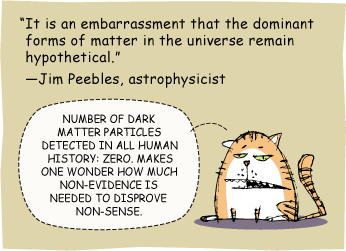


Current

Thunderbolts Project What About Dark Matter?
The Periodic Table of Dark Matter The Emperor’s New Fabric of Space
Filed in Kurmudgeon Kat 2/19/26

Top Ten Ideas I’ve had for terrycolon.com this Month
At my time of life, quitting is not an option, it’s a lifestyle.
Filed 2/9/26

Progressive to English Translations
Filed in Mouse Utopia 2/5/26

Filed in Spot and Smith –Talking Man to Dog 2/2/26

…English is weird.
Consider the verbal phrase, combining a verb and a preposition to create a different or more specific meaning. For example think of think of. Also, think up, think over, think out, think through, think about. Verbal phrases can confuse non-native English learners since very few other languages do this. Plus, the prepositions don’t mean what they do on their own. I mean, what does up, as in a direction, have to do with think up, make up, wake up, crack up, etc.? And can you think over something you didn’t think of before? Think about it.
Then we sometimes have seeming oposites that aren’t. Burn up, burn down, same thing. Start in, start out, same thing. Close down, close up, same thing. Also you might shut down a critic so they shut up. And maybe become a shut in. Time to close out this entry with a link:
The Most Surprising Features English Has That Other Languages Don’t
Filed 1/26/26


Hover over the art and see why you just can’t believe your lying eyes.
Video: 15 Optical Illusions You HAVE to Try
Filed 1/19/26
Mr. Yardley (the Homeowners Pal) Advises

I can’t see my house for all the overgrown trees and bushes. I’m wondering if it might be too much.
Wonder no more, it is. Oftentimes through owner negligence or laziness plants will simply get too big for their britches, so to speak. If out-of-control flora is threatening to swallow up your home, a cheap, quick fix is a box of kitchen matches and some inflammable (or flammable, same thing) debris that’s probably just laying around the yard anyway. Remember, fire is nature’s pruning shears. Just ask an Angeleno.
Filed 1/13/26
Different? Different how? You know; weird, odd, strange, bizarre, loopy, screwy, outré. Outré? What a peculiar word. Exactly. Huh? Outré: unusual, startling. From the French. Yeah, it would be. Stop talking to yourself and get to the point. Right. Here we go, video links:
The Comedic Timing of Nicolino Locche (Weirdest Boxer Ever)
Erik Satie —History’s Weirdest and Most Eccentric Musician
Filed 1/9/26




What’s Next?
What does the future hold in store? Only time will tell. And if the past is any indication, it’s going to be a bumpy ride. Happy New Year!
Filed 1/1/26